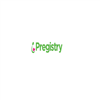
Gynecologists from almost every part of the world opine that if you are planning for pregnancy or have already tested positive, it’s time you should take the prenatal vitamin-folic acid. It would help your baby to be healthy and free from some of the non-curable birth defects.
Reports have shown that consuming the recommended dose of folic acid before and during pregnancy can reduce the incidence of birth defects in the brain and spinal cord among newborns. Consuming the recommended folic acid dosage also reduces neural tube defect or spina bifida, and abnormal spine and vertebrae.
What is folic acid?
Folic acid is one of the most essential vitamins that women need after giving birth or in their postpartum. Both during pregnancy and after giving birth to your child, folic acid has roles to play. Essentially, folic acid is the man-made form of B vitamin called folate. As we have mentioned above, taking folic acid in the prescribed dose plays a crucial role in reducing birth defects among newborns.
Apart from these, women who are taking folic acid, give birth to babies with healthy red blood cells, zero chances of anemia and anencephaly (impaired brain or skull development).
But what does it have to do after the baby is born? Well, for a new mother, folic acid acts as a supplement after giving birth for healthy and clean blood. Like many women these days choose to be pregnant at the late 30s or later than that, folic acid also takes care of their heart health.
However, if someone has skipped folic acid consumption during her pregnancy? Apart from consulting the doctor and following the necessary methods, what one can immediately do is to start taking higher doses of folic acid daily.
Natural sources of folic acid
Consuming natural sources of folic acid is also another way to deal with some serious hormonal changes and the need for physical healing after giving birth to the child. As per USA’s Centre for Disease Control, approximately 600,000 American women suffer from postpartum depression every year. Not only Americans, but postpartum depression is also common among all new mothers across the world.
With this, vitamin D deficiency, aching body, and fatigue take a toll on women those who have given birth. While doctors recommend supplements to cater to the changing needs of the body, some natural sources of folic acid can also do wonders.
Let’s see to those natural sources of folic acid which could help women meet specific postpartum needs-
Dark green vegetables like broccoli and spinach, and dried legumes such like chickpeas, beans, and lentils are naturally good sources of folate. Cooked beets and potatoes can also be incorporated in the diet.As folate is a water-soluble B vitamin and cannot be stored in the body, one has to include folic acid rich foods in their daily diet.
Breastfeed women who are of 19 years old or older should consume 500 mcg of folic acid per day. And to do so, one should start taking fruits like avocado, papaya, and orange.
As it comes to grain products, paste, egg noodles, and whole wheat bread are excellent options to do the experiment. Those who love eating meat can opt for chicken liver, beef, and pork to be fit and fine.
Bottom Line on folic acid
The benefits of consuming folate-rich foods know no boundaries. While we have described all those here, in brief, you should always visit your doctor before taking anything when you are a breastfeeding mother.



Leave Comment